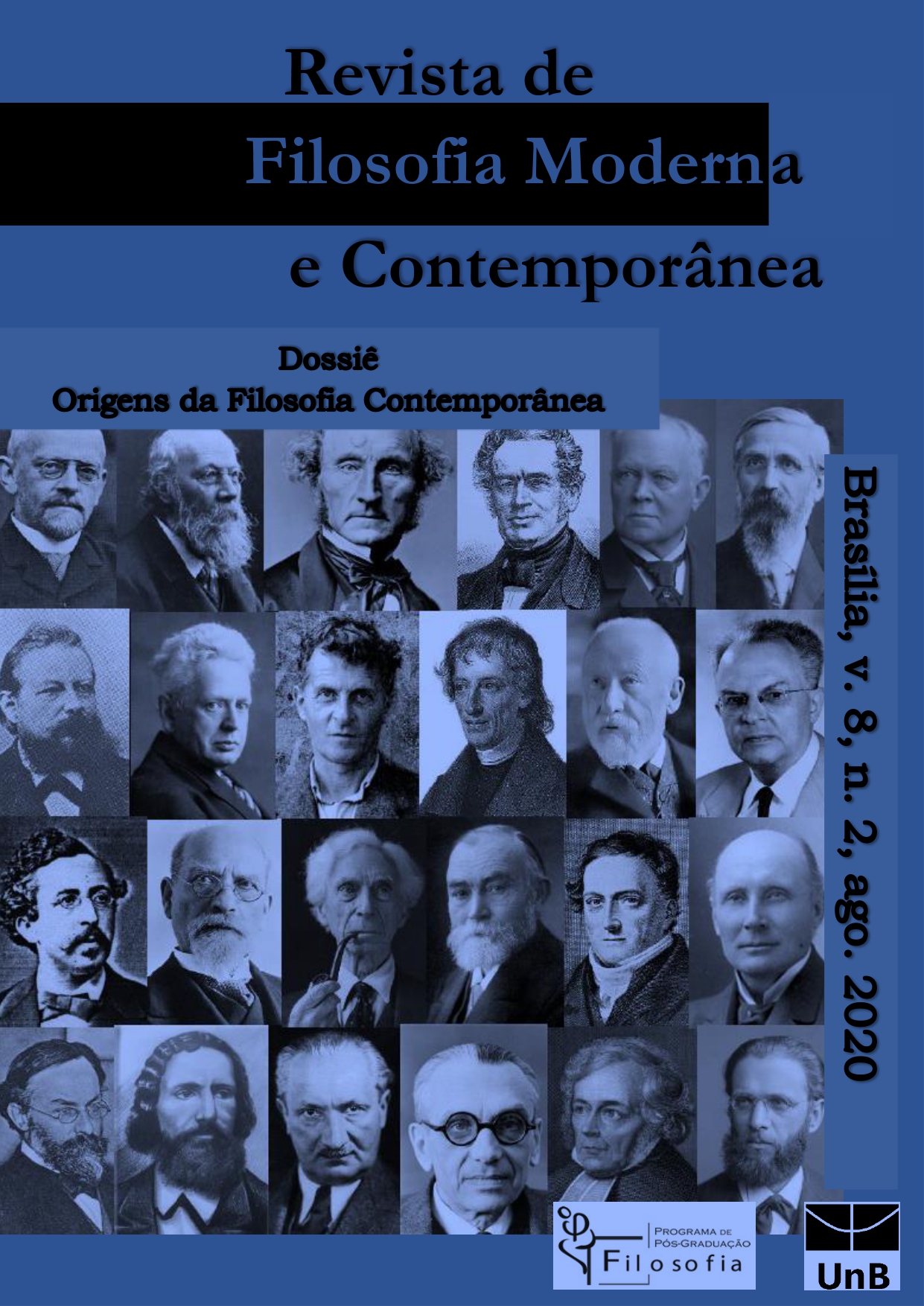Religion Redeemed by Reason
Enlightenment according to Gotthold E. Lessing
DOI:
https://doi.org/10.26512/rfmc.v8i2.31962Keywords:
Enlightenment. Theology. Controversies. Argumentation. HumanitiesAbstract
The paper intends to highlight how much a certain Enlightenment is not necessarily a fight against established religion. It may be even an impulse to save it, although it is not a religious project, but an humanistic one. More precisely, the text proposes to underline that saving religion of itself to emancipate humanity by reason and education would be the very project of Lessing, notably in Nathan the Wise. For this purpose, the paper will contextualize the German intellectual daily scene of Lessing´s time, scene guided by theological texts, not by enlightened ones; it will approach the various theologies existing then in Germany; it will also approach the very Enlightenment assuming a theological dimension, with Christian Wolff. The enlightened majority of Lessing will be visited by means of his plural vocation, of his taste for controversies, emphasizing also the peculiarity of his argumentation without fixed or demarcated positions; and yet, by the notions of education and humanity.
Downloads
References
ARENDT, H. “On Humanity in Dark Times” (trad. Clara e Richard Winston). In: Men in dark times. New York: A Harvest Book, 1968.
BECKER-CANTARINO, B. (org.) German Literature in the Era of Enlightenment and Sensibility. Rochester, NY: Camden House.
BURNS, E. Science in the Enlightenment. An Enciclopedia. Santa Barbara: ABC CLIO, 2003.
DILTHEY, W. Das Erlebnis und die Dichtung: Lessing-Goethe-Novalis-Hörderlin, Leibniz: B G Teubner, 1921.
HEINE, H. Sämtliche Werke, vol. 3, Schriften zur Literatur und Politik 1. Darmstadt: Wissenschaftliche Buchgesellschaft, 1992.
JENS, W. & KÜNG, W. Literature & Religion: Pascal, Gryphius, Lessing, Hölderlin, Novalis, Kierkegaard, Dostoyevsky, Kafka. New York: Paragon House, 1991.
KANT, I. Beantwortung der Frage: Was ist Aufklärung? 1784, in: Kants Gesammelte Schriften, vol. 8. Berlin: Walter de Gruyter, 1923.
LEIBNIZ, G. W. Discurso de metafísica. Trad. Marilena Chauí e Alexandre da Cruz Bonilha. São Paulo: Martins Fontes, 2004.
LESSING G. E. Über den Beweis des Geistes und der Kraft, in: Werke und Briefe, vol. 8. SCHILSON A. (org.) Deutsche Klassiker Verlag, 1989.
_____________. “Axiomata”. In: Werke und Briefe, vol. 9. BOHNEN K. & SCHILSON, A. (org.). Frankfurt a.M.: Deutscher Klassiker Verlag, 1993.
_____________.“Bibliolatrie” (1779). In: Werke 1778-1781, vol. 10. SCHILSON A. & SCHMITT A. (org.). Frankfurt a.M.: Deutscher Klassiker Verlag, 2001.
_____________. “Brief an Johann Gottfried Lessing, von 30. Mai 1749”, n. 21. In: Werke und Briefe, vol. 11, KIEWEL H., BRAUNGART G. & FISCHER K. (org.) Franfkurt a.M.: Deutscher Klassiker Verlag, 1987.
______________. “Brief an Elise Reimarus, von 6. September 1778”, n. 1398. In: Werke und Briefe, vol. 12. In: KIESEL, H. et al. (org.). Deutscher Klassiker Verlag: Frankfurt a.M., 1994.
_______________. “Brief an Karl Lessing, von 11. Oktober 1778”, n. 1389. In: KIESEL, H. et al. (org.). Deutscher Klassiker Verlag: Frankfurt a.M., 1994.
_______________. Nathan der Weise. In: http://www.zeno.org/Literatur/M/Lessing,+Gotthold+Ephraim/Dramen/Nathan+der+Weise
______________ & NISBET, H. B. Lessing: Philosophical and Theological Writings. Trad. H. B. Nisbet. Cambridge: Cambridge University Press, 2005.
MATTOS, F. O filósofo e o comediante. Belo Horizonte: Editora UFMG, 2001.
YASUKATA, T. Lessing´s Philosophy of Religion and the German Enlightenment. Lessing on Christianity and Reason. Oxford/New York: Oxford University Press, 2002.
Downloads
Published
How to Cite
Issue
Section
License
Copyright (c) 2020 Journal of Modern and Contemporary Philosophy

This work is licensed under a Creative Commons Attribution-NonCommercial-NoDerivatives 4.0 International License.
Copyright for articles published in this journal is retained by the authors, with first publication rights granted to the journal. By virtue of their appearance in this open access journal, articles are free to use, with proper attribution, in educational and other non-commercial settings.


